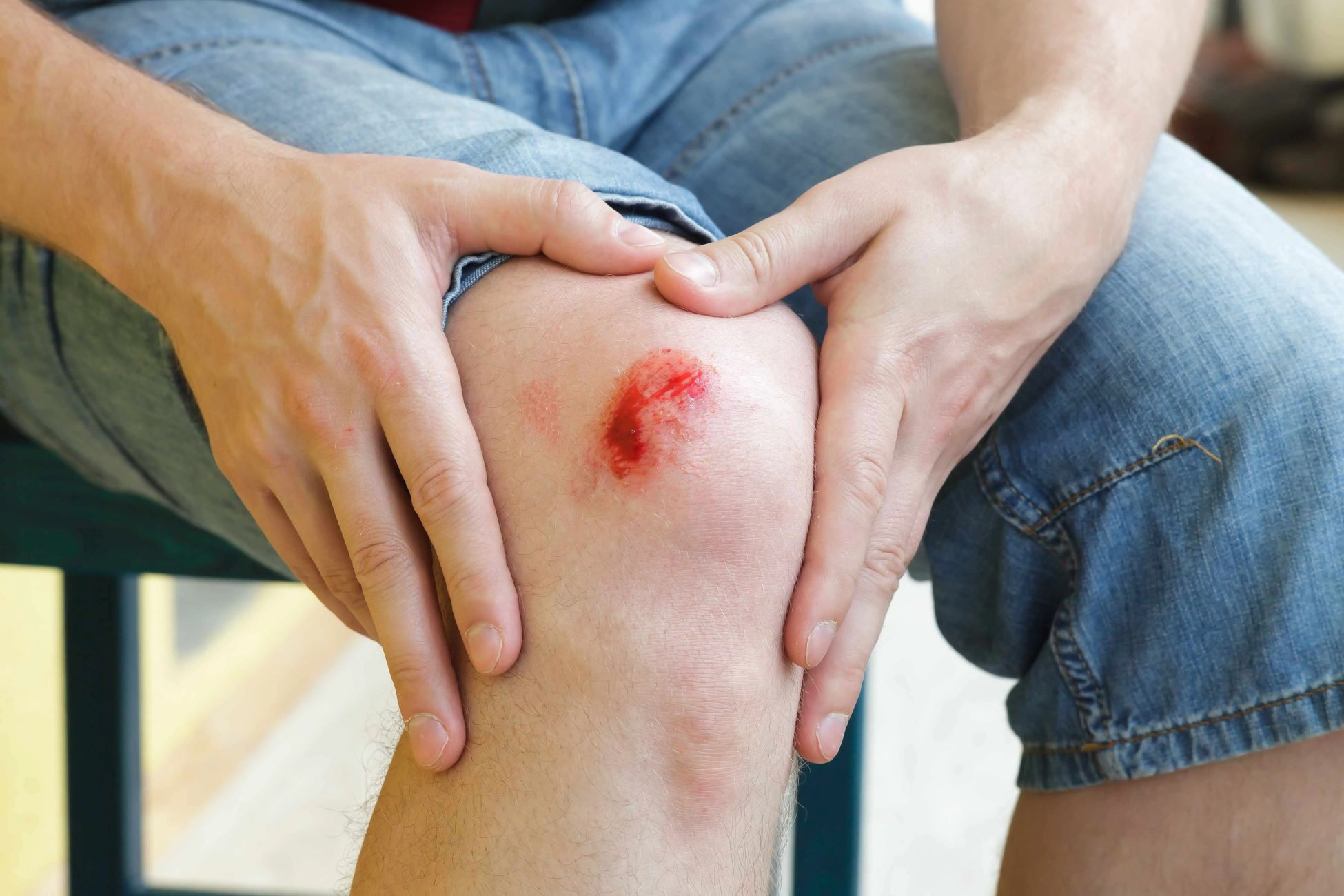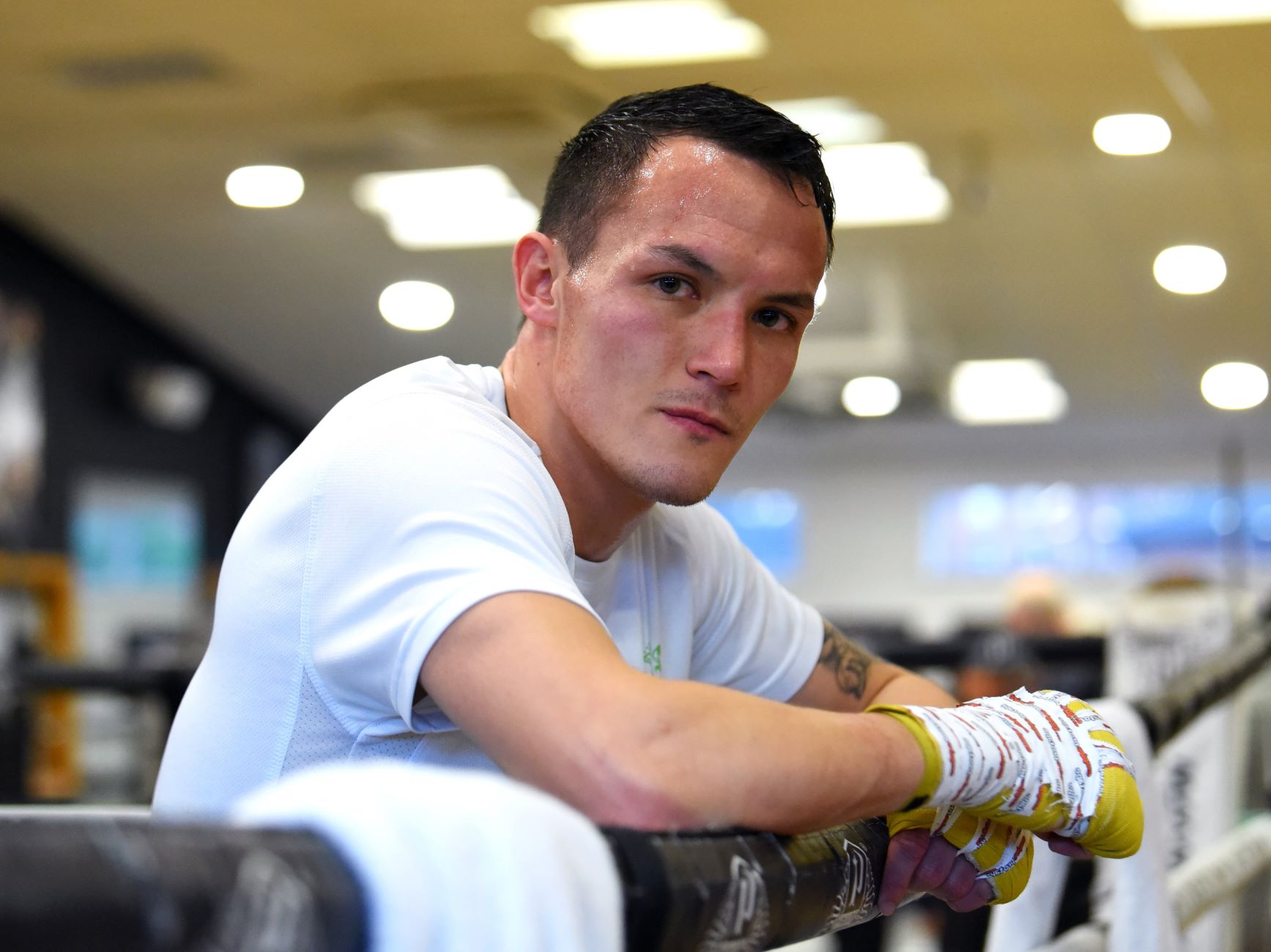Home>Health & Nutrition>Recovery>Recovering From A Marathon: A Journey Of Healing


Recovery
Recovering From A Marathon: A Journey Of Healing
Published: February 27, 2024
Embark on a journey of recovery after completing a marathon. Discover the healing process and tips for a successful recuperation.
(Many of the links in this article redirect to a specific reviewed product. Your purchase of these products through affiliate links helps to generate commission for Therunningadvisor.com, at no extra cost. Learn more)
Table of Contents
The Physical Toll of Running a Marathon
Running a marathon is a remarkable achievement that demands immense physical exertion. The toll it takes on the body is profound and cannot be underestimated. As runners push themselves to the limit, their bodies undergo a series of demanding challenges that can have lasting effects. Understanding the physical toll of running a marathon is crucial for effective recovery and long-term well-being.
Muscular Fatigue and Microtrauma
During a marathon, the muscles endure continuous stress and strain. The repetitive motion of running for an extended period can lead to muscular fatigue and microtrauma. This microtrauma, which refers to tiny tears in the muscle fibers, is a natural result of the intense physical activity. As a result, runners often experience soreness, stiffness, and reduced muscle function in the days following the race.
Depletion of Energy Stores
The human body relies on glycogen, a form of stored glucose, as a primary energy source during endurance activities like marathon running. Completing a marathon depletes these energy stores significantly, leading to fatigue and a sense of physical depletion. Replenishing these stores is essential for recovery and restoring the body's energy levels.
Joint and Bone Stress
The repetitive impact of foot strike during a marathon places considerable stress on the joints and bones. This can lead to discomfort, inflammation, and in some cases, injury. The knees, hips, and ankles are particularly vulnerable to the strain of long-distance running, and it is not uncommon for marathon runners to experience joint pain and stiffness post-race.
Immune System Suppression
Engaging in intense physical activity, such as running a marathon, can temporarily suppress the immune system. The body's defenses may be weakened in the days following the race, making runners more susceptible to illness. It is crucial to prioritize immune system support during the recovery phase to minimize the risk of falling ill.
Hydration and Electrolyte Imbalance
Maintaining proper hydration and electrolyte balance is essential for optimal physical function. However, the demands of a marathon can lead to significant fluid and electrolyte loss through sweat. Replenishing these vital elements is crucial for recovery and overall well-being.
Understanding the physical toll of running a marathon is the first step toward effective recovery. By acknowledging the challenges the body faces during and after the race, runners can implement targeted strategies to support healing and restoration. Prioritizing rest, nutrition, and holistic recovery techniques is essential for mitigating the physical impact of marathon running and setting the stage for a successful recovery journey.
The Emotional Impact of Completing a Marathon
Completing a marathon is a monumental achievement that transcends the realm of physical endurance. The emotional impact of crossing the finish line extends far beyond the immediate elation of accomplishment. It encompasses a profound journey of self-discovery, resilience, and personal triumph. Understanding the emotional impact of completing a marathon is essential for recognizing the holistic nature of the marathon experience and the diverse range of emotions that runners may encounter.
Overwhelming Elation and Pride
The moment of crossing the marathon finish line is often accompanied by an overwhelming surge of elation and pride. The culmination of months of training, dedication, and unwavering determination converges into a single, triumphant instant. The sense of achievement and pride in overcoming the grueling 26.2-mile challenge is unparalleled, leaving runners awash with a profound sense of accomplishment.
Emotional Exhaustion and Vulnerability
While the immediate aftermath of completing a marathon is filled with jubilation, it is often followed by a period of emotional exhaustion and vulnerability. The intense physical exertion and mental fortitude required to conquer the marathon can leave runners feeling emotionally drained and exposed. The release of built-up tension and adrenaline can evoke a complex array of emotions, ranging from euphoria to vulnerability.
Reflection and Personal Growth
In the wake of completing a marathon, many runners experience a period of deep reflection and introspection. The journey from the starting line to the finish line becomes a metaphor for personal growth, resilience, and the capacity to overcome seemingly insurmountable challenges. This introspective phase often sparks profound insights into one's own strength, determination, and capacity for growth, fostering a newfound sense of self-awareness and empowerment.
Post-Marathon Blues
It is not uncommon for marathon runners to experience a sense of emotional letdown in the days following the race. The post-marathon blues, characterized by a subtle feeling of emptiness or aimlessness, can arise as the intense focus and anticipation leading up to the event dissipates. This emotional lull underscores the need for runners to acknowledge and address the complex emotional journey associated with completing a marathon.
Bonding and Camaraderie
The emotional impact of completing a marathon extends beyond individual experiences and often encompasses a sense of camaraderie and bonding with fellow runners. The shared triumph of conquering the marathon fosters a deep sense of connection and mutual respect among participants, creating enduring memories and emotional connections that transcend the physical act of running.
Understanding the emotional impact of completing a marathon is pivotal for runners as they navigate the post-race period. By acknowledging the diverse range of emotions that accompany this monumental achievement, runners can embrace the holistic nature of the marathon experience and cultivate a deeper appreciation for the emotional resilience and personal growth that it entails.
Strategies for Rest and Recovery
After completing a marathon, prioritizing rest and recovery is paramount for the body's healing and rejuvenation. The physical and emotional toll of the race necessitates deliberate strategies to support the restoration of the body and mind. Implementing effective rest and recovery techniques is essential for minimizing post-marathon fatigue, promoting muscle repair, and fostering overall well-being. Here are key strategies to facilitate a comprehensive recovery process:
Adequate Rest and Sleep
Ensuring ample rest and quality sleep is fundamental for post-marathon recovery. The body's repair and regeneration processes are significantly enhanced during sleep, making it crucial for muscle recovery and overall healing. Aim for 7-9 hours of uninterrupted sleep each night to support the body's recovery efforts.
Gentle Movement and Active Recovery
Engaging in gentle, low-impact activities such as walking, swimming, or yoga can promote blood circulation and alleviate muscle soreness. Active recovery techniques help prevent stiffness and enhance the body's natural healing processes without imposing additional strain on fatigued muscles and joints.
Nutrient-Rich Diet
Consuming a well-balanced diet rich in lean proteins, complex carbohydrates, healthy fats, and an array of vitamins and minerals is vital for post-marathon recovery. Nutrient-dense foods support muscle repair, replenish energy stores, and bolster the immune system, facilitating the body's recovery from the physical demands of the race.
Hydration and Electrolyte Replenishment
Maintaining optimal hydration levels and replenishing electrolytes is essential for supporting the body's recovery process. Adequate hydration aids in muscle repair and function, while replenishing electrolytes lost during the marathon helps restore the body's fluid balance and supports overall well-being.
Self-Care and Recovery Modalities
Incorporating self-care practices such as massage, foam rolling, and stretching into the post-marathon recovery routine can alleviate muscle tension, enhance flexibility, and expedite the healing process. These modalities promote relaxation, reduce muscle soreness, and contribute to overall physical and mental well-being.
Mental and Emotional Recovery
Acknowledging and addressing the emotional impact of completing a marathon is integral to holistic recovery. Engaging in activities that promote mental relaxation and emotional well-being, such as meditation, journaling, or spending time in nature, can support emotional recovery and foster a sense of balance and tranquility.
Gradual Return to Training
While rest and recovery are paramount, gradually reintroducing light, low-impact training after the initial recovery phase can aid in maintaining fitness levels and preventing deconditioning. Incorporating gentle activities and gradually increasing intensity over time can support a seamless transition back to regular training.
By implementing these comprehensive strategies for rest and recovery, marathon runners can optimize their post-race healing process, minimize the risk of injury, and lay a solid foundation for future training and athletic endeavors. Prioritizing rest and recovery is not only essential for physical well-being but also plays a pivotal role in nurturing the emotional resilience and mental fortitude of runners as they embark on their recovery journey.
Seeking Professional Support for Healing
Seeking professional support for healing after completing a marathon is a proactive and essential step in the post-race recovery journey. While self-care practices and restorative techniques play a pivotal role in the healing process, the guidance and expertise of healthcare professionals can provide invaluable support in addressing specific physical and emotional needs. From specialized medical care to targeted therapeutic interventions, professional support offers a comprehensive approach to recovery, ensuring that runners receive tailored assistance to facilitate optimal healing.
One of the primary avenues for seeking professional support is through sports medicine practitioners and physical therapists. These professionals possess specialized knowledge in treating sports-related injuries and optimizing physical performance. By consulting with a sports medicine physician or physical therapist, runners can receive personalized assessments of their post-marathon physical condition, including identifying any potential injuries, muscle imbalances, or areas of concern. This individualized evaluation forms the basis for developing a targeted recovery plan, encompassing rehabilitative exercises, injury-specific treatments, and guidance on safe return to training.
Additionally, seeking professional support for healing may involve engaging with licensed massage therapists or bodywork specialists. These practitioners are adept at employing various manual therapy techniques to alleviate muscle tension, enhance circulation, and promote overall relaxation. Through targeted massage therapy sessions, runners can experience relief from post-marathon muscle soreness, expedited recovery of fatigued muscles, and improved flexibility. Moreover, bodywork specialists can offer valuable insights into self-care practices and recovery modalities that complement the overall healing process, empowering runners to actively participate in their recovery journey.
In cases where emotional well-being and mental resilience are focal points of concern, seeking professional support from mental health professionals, such as counselors or psychologists, can be profoundly beneficial. The emotional impact of completing a marathon can manifest in various ways, and addressing these emotional nuances is integral to holistic healing. Mental health professionals can provide a supportive environment for runners to process their post-marathon experiences, navigate emotional challenges, and develop coping strategies to foster emotional resilience. Through counseling sessions, runners can gain insights into managing post-race emotions, addressing performance-related stress, and nurturing a positive mindset as they progress through the recovery phase.
Furthermore, seeking professional support for healing encompasses collaborating with registered dietitians or nutrition specialists to optimize post-marathon nutrition and hydration. These professionals can offer tailored dietary recommendations to support muscle recovery, replenish energy stores, and address specific nutritional needs based on individual physiological requirements. By receiving personalized nutritional guidance, runners can enhance their body's recovery processes, fortify their immune system, and promote overall well-being through optimal dietary practices.
In essence, seeking professional support for healing after completing a marathon is a proactive and multifaceted approach to post-race recovery. By leveraging the expertise of sports medicine practitioners, physical therapists, massage therapists, mental health professionals, and nutrition specialists, runners can access a comprehensive network of support to address their unique physical and emotional needs. Embracing professional guidance and tailored interventions fosters a holistic approach to healing, empowering runners to navigate the post-marathon recovery journey with confidence, resilience, and a steadfast commitment to long-term well-being.
Returning to Training and Setting New Goals
Returning to training after completing a marathon marks a significant phase in the post-race journey. It represents a pivotal transition from recovery to renewed focus, as runners embark on the next chapter of their athletic endeavors. This phase is characterized by a delicate balance between rebuilding physical strength, nurturing mental resilience, and setting new aspirations. It is a time of reflection, recommitment, and strategic planning, as runners chart their course toward future achievements.
Gradual Reintegration and Patience
The process of returning to training after a marathon necessitates a gradual and patient approach. While the temptation to resume intense workouts may be strong, it is essential to prioritize gradual reintegration to prevent overexertion and minimize the risk of injury. Incorporating low-impact activities, such as gentle runs, cross-training, and strength exercises, allows the body to acclimate to physical exertion while gradually rebuilding endurance and strength. Embracing patience during this phase is paramount, as it fosters a sustainable and injury-free return to regular training.
Reflecting on the Marathon Experience
As runners transition back to training, reflecting on the marathon experience holds profound significance. It offers an opportunity to glean insights from the race, identify areas for improvement, and celebrate personal achievements. Reflective introspection enables runners to acknowledge their resilience, recognize their growth, and draw inspiration from the challenges they conquered. This reflective process serves as a catalyst for setting new goals and refining training strategies, infusing the post-marathon phase with renewed purpose and determination.
Setting New Goals and Aspirations
Setting new goals is a cornerstone of the post-marathon phase, igniting a sense of anticipation and motivation. Whether it involves targeting a new race distance, aiming for a personal best time, or exploring diverse running terrains, establishing clear and attainable goals provides direction and purpose. By delineating specific objectives, runners cultivate a roadmap for their training journey, fueling their passion for running and fostering a sense of accomplishment as they strive toward new milestones.
Embracing Versatility and Adaptability
In the process of returning to training and setting new goals, embracing versatility and adaptability is instrumental. Recognizing the dynamic nature of athletic pursuits, runners may encounter unforeseen challenges, fluctuations in performance, or evolving aspirations. Embracing adaptability empowers runners to adjust their training plans, explore diverse training modalities, and remain resilient in the face of obstacles. This flexibility fosters a holistic approach to training, nurturing physical adaptability and mental fortitude.
Cultivating a Balanced Training Regimen
Balancing training intensity with adequate recovery and cross-training is fundamental as runners resume their training journey. Integrating diverse training modalities, such as strength training, flexibility exercises, and targeted cross-training activities, promotes overall fitness and reduces the risk of overuse injuries. Cultivating a balanced training regimen not only enhances physical performance but also fosters a well-rounded approach to athletic development, ensuring comprehensive fitness and resilience.
Fostering a Positive Mindset and Resilience
Returning to training and setting new goals is inherently intertwined with fostering a positive mindset and resilience. Embracing a growth-oriented perspective, maintaining optimism, and cultivating mental resilience are essential components of the post-marathon phase. Nurturing a positive mindset empowers runners to navigate challenges, persist through setbacks, and sustain their passion for running, fostering a resilient and determined approach to achieving new goals.
In essence, returning to training and setting new goals after completing a marathon embodies a multifaceted journey of renewal, reflection, and recommitment. It represents a transformative phase where runners harness their post-race experiences, chart a course toward new aspirations, and cultivate a resilient and purposeful approach to their athletic pursuits. By embracing gradual reintegration, reflective introspection, goal setting, adaptability, balanced training, and a positive mindset, runners embark on a dynamic and empowering post-marathon training journey, poised to achieve new heights in their running endeavors.










